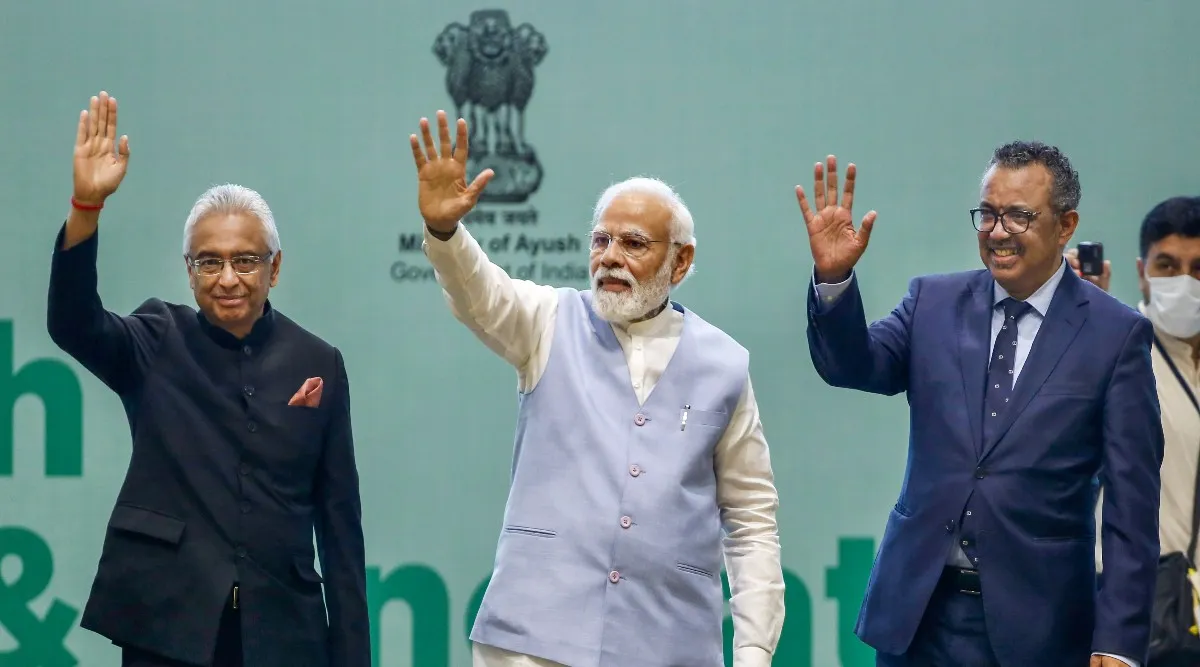The Indian Council of Medical Research (ICMR) and the Ministry of Ayush recently decided to expand their collaboration in health research linked to integrated medicine. The goal of this collaboration is to build Ayush departments within famous medical institutes such as AIIMS. However, this initiative has created a discussion about the efficacy and practicality of an integrated medical system.

What exactly is an integrated medical system?
- An integrated system of medicine is a method of providing complete and patient-centered treatment that includes aspects from many healthcare systems or modalities, such as conventional medicine and traditional or complementary/alternative medicine.
Characteristics of an integrated medical system
- A holistic approach to healthcare is taken by an integrated system of medicine, which recognises the interdependence of multiple elements of health, including physical, mental, emotional, and spiritual well-being. It looks at the full individual rather than just symptoms or specific disorders.
- Multiple Healthcare Modalities: It includes conventional medicine, traditional medicine systems (e.g., Ayurveda, Traditional Chinese Medicine), complementary and alternative medicine (e.g., acupuncture, herbal medicine), mind-body practises (e.g., yoga, meditation), and other evidence-based therapies.
- Collaboration and Interdisciplinary Care: An integrated medical system promotes collaboration and cooperation among healthcare providers from many specialties. This interdisciplinary approach enables a thorough assessment of the patient’s needs and the creation of personalised treatment programmes.
- Evidence-Based Practise refers to the integration of various healthcare modalities based on scientific evidence, research, and clinical recommendations. It emphasises the use of evidence-based practises in order to ensure that treatments and interventions are safe, effective, and backed up by trustworthy data.
- Individualised Treatment: An integrated medical system recognises that each individual is unique and may necessitate personalised treatment approaches. When designing treatment plans, it takes into account individual circumstances, preferences, and goals, allowing for personalised care.
- Prevention and wellness are prioritised: It emphasises preventive measures, health promotion, and wellness-focused initiatives. It seeks to identify and address underlying causes that lead to illness, with a focus on disease prevention and optimal health.
- Patient-Centered Care: A comprehensive medical system prioritises the patient’s requirements, preferences, and values. Active patient participation in healthcare decision-making, education, and self-care practises are all part of it. The patient is regarded as a collaborator in their own healthcare journey.
- Care Coordination and Continuity of Care: An integrated medical system seeks for seamless coordination and continuity of care across various healthcare modalities. To provide complete and well-coordinated healthcare, it emphasises good communication, information sharing, and collaborative management.
Ayush inpatient and outpatient services are available at Central Government hospitals.
- AYUSH departments that are dedicated: The Ayush Ministry has resolved to establish AYUSH inpatient and outpatient departments at Central Government hospitals to provide services pertaining to Ayurveda, Yoga, Naturopathy, Unani, Siddha, and Homoeopathy (together known as Ayush systems of medicine).
- The goal is to provide a broader choice of therapeutic options: This project seeks to incorporate traditional and alternative medicine practises into mainstream healthcare, providing patients with more treatment options and encouraging holistic healthcare methods.
- Aims to promote and preserve traditional healthcare: The decision to establish these departments indicates the government’s acknowledgement of Ayush systems of medicine’s growing popularity and acceptance in India. It is consistent with the ministry’s purpose of supporting and protecting traditional healthcare practises while also assuring their incorporation into the larger healthcare framework.
- Opening Ayush departments in Central Government hospitals also helps research by allowing for the evaluation of the efficacy and safety of Ayush treatments in conjunction with conventional medical practises. This collaboration between Ayush and modern medicine has the potential to result in the establishment of standardised protocols, a greater knowledge of the potential benefits, and better patient outcomes.
@the end
The argument over the incorporation of Ayush practises into mainstream healthcare reveals opposing viewpoints. While an integrated system has enormous potential benefits, it also raises issues about the scientific legitimacy and safety of alternative medicine. It is critical to strike a balance between evidence-based therapy, patient preferences, and regulatory control.
Source: https://pib.gov.in/PressReleaseIframePage.aspx?PRID=1923378
